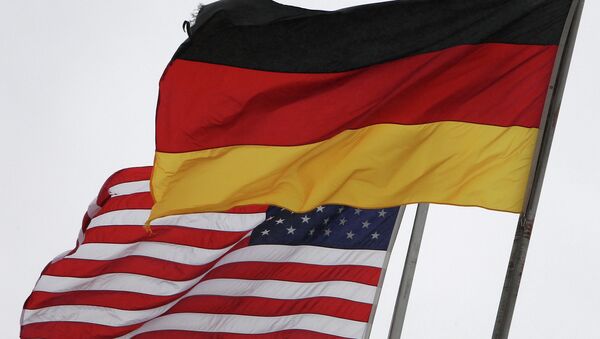Sputnik: Why do you think the US wants allies to send ground troops to Syria now after the hotbed of terrorism has been destroyed in the country?
Professor Peter Schulze: Actually, since the first World Trends report of the National Intelligence Agency of 2009, every president received a report analyzing the future framework and field in which US foreign and security policy needs to operate. Already in 2009, it was made clear that the US cannot shoulder anymore the role as global policemen alone. They need allies and the allies should participate in burden sharing, splitting the costs of interventions, wars and other hard power engagements. This is one of the reasons the Trump administration demands fiercely from all NATO partners an increase of their defence spending up to 2%.
In the case of Syria, yes, the IS* has been militarily defeated, but remnants of the terrorists still work undercover. The US wants to free its hands for other possible engagements - maybe Iran - distribute the costs and bring the Europeans in so that they exert more international responsibility and become, like in Afghanistan, interlocked with US foreign policy.
Sputnik: German government spokesperson Steffen Seibert said on Monday that Germany has "for years been making a significant and internationally acknowledged contribution" to fighting Daesh. How would the German public perceive the idea of its ground troops being stationed in Syria and military budget increases?
Professor Peter Schulze: The German public would be vehemently opposed to sending German ground forces into Syria. The increase of defence spending is seen as not necessary, because of the absence of threats. However, the German army needs a fundamental restructuring, a revamp of its ill-functioning units. This idea is widely supported by public opinion.
Sputnik: How do you assess Germany's official rejection? What impact may it have on the relationship between the US and Germany?
Professor Peter Schulze: The relationship between Berlin and Washington are in its worst state ever. The Trump administration singles Berlin out and nearly treats the German government as an oppositional if not even enemy-like force. Berlin is seen as the main obstacle for the US administration to line the other European allies strongly behind Trump. Berlin’s policy of sidestepping the problems is not really convincing and may lead to an escalation of conflicts between Washington and Berlin. If the Trump administration will escalate its protectionist policy and cause severe export barriers for Germany – which may happen after the next presidential elections in the US and with a new electoral victory for Trump - Berlin’s policy must address the situation and strengthen common European responses. This would be a severe challenge for Merkel’s successor in 2021.
Sputnik: Johann Wadephul, an ally of German Chancellor Angela Merkel, and a possible successor to German Defence Minister Ursula von der Leyen, has called for Berlin to consider the US request. "In this region, it's about our security and not American security," he said. Do you support this position? Why?
Professor Peter Schulze: No, I do not support such a view. It is the traditional reply and argumentation since the Afghan war of 2003 and not even connected to today’s burning refugee crisis. Germany is forced to stay out of the conflict and act as a mediating power between Turkey, the US and the Kurds, even Iran. The main acting forces in the region are anyhow not controllable by Washington, Berlin, Brussels or Moscow. For the CDU and SPD, the grand government coalition, it would be suicidal to engage on a military solution just before elections. However, support of military logistics, training etc. as it is rendered already now should continue.
*Daesh (ISIL/ISIS/Islamic State/IS), a terrorist group banned in Russia and a wide number of other countries.
The views expressed in this article are those of the speaker and do not necessarily reflect those of Sputnik.

